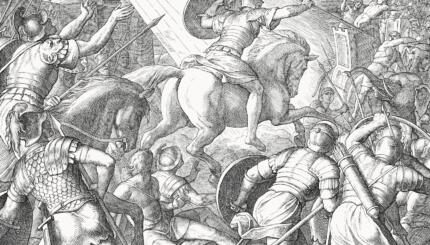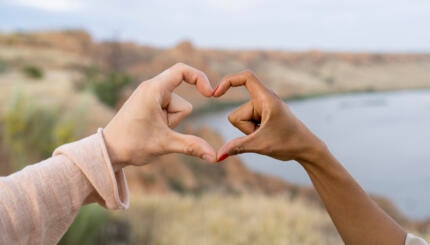It was some 30 years ago that President Reagan signed into law and established a new federal holiday: The Reverend Dr. Martin Luther King, Jr. Day to be observed on his birthday. It took a couple years after the passage of the law for it to be first observed and it was only commemorated in all 50 states for the first time in 2000. Every year during this time I try and reflect on the ever evolving nature of social justice and our country. One of the highlights of my previous work at Harvard was the annual event put together by the Harvard Chaplains on this weekend exploring a different theme of Dr. King’s with modern day applications through lecture, poetry and music.
Rev. Dr. Martin Luther King, Jr. with Rabbi Abraham Joshua Heschel
This year I began to re-read Dr. King’s address to the congregation at Temple Israel in Los Angeles in 1965. Three years before he was assassinated he spoke powerfully that evening in California filling the Sanctuary with his prophetic and powerful voice for justice. One paragraph struck me deeply this year:
“We are all caught in an inescapable network of mutuality, tied in a single garment of destiny. And what affects one directly affects all indirectly. For some strange reason, I can never be what I ought to be until you are what you ought to be. And you can never be what you ought to be until I am what I ought to be. John Donne caught it years ago and placed it in graphic terms, “No man is an island entire of itself; every man is a piece of the continent, a part of the main.” And he goes on toward the end to say, ‘Any man’s death diminishes me because I am involved in mankind. And therefore never sin to know for whom the bell tolls, it tolls for thee.'”
It seems to me that we are witnessing a breakdown in the shared space of society in our current time. The shared public square where divergent views come and meet; where people of differing social backgrounds, educations and religious, ethnic, racial and cultural backgrounds gather seems to be disappearing. We live in our own individual silos. It is possible that the only interaction an upper middle-class individual and a poorer individual might have is within the context of waiter/busboy/barista/bus driver and customer.
When we fail to know one another in society we experience a lack of empathy and care. If I can put all the people who are different than me in boxes made by my own lack of personal experience, stereotypes and judgments than I don’t have to worry about their welfare or well being. In the same speech Dr. King also declared the truth that: “A great nation is a compassionate nation.” Compassion grows from an active and dynamic shared society and the empathy, care and concern that it generates.
How do we rebuild a shared society? How do we exit our individual silos and begin to build together? It takes small steps and small victories. It takes getting to know the people who serve you and the people you serve. It takes inhabiting the public spaces of a city together. It takes putting down the smartphone or tablet and not being afraid or feeling it awkward to encounter the person sitting next to you on the bus or subway.
In these ways and in so many other myriad of ways we will cause to flourish yet again the diverse shared society that is one of the keys that made this country so great. During this weekend let us commit ourselves to that important task.



